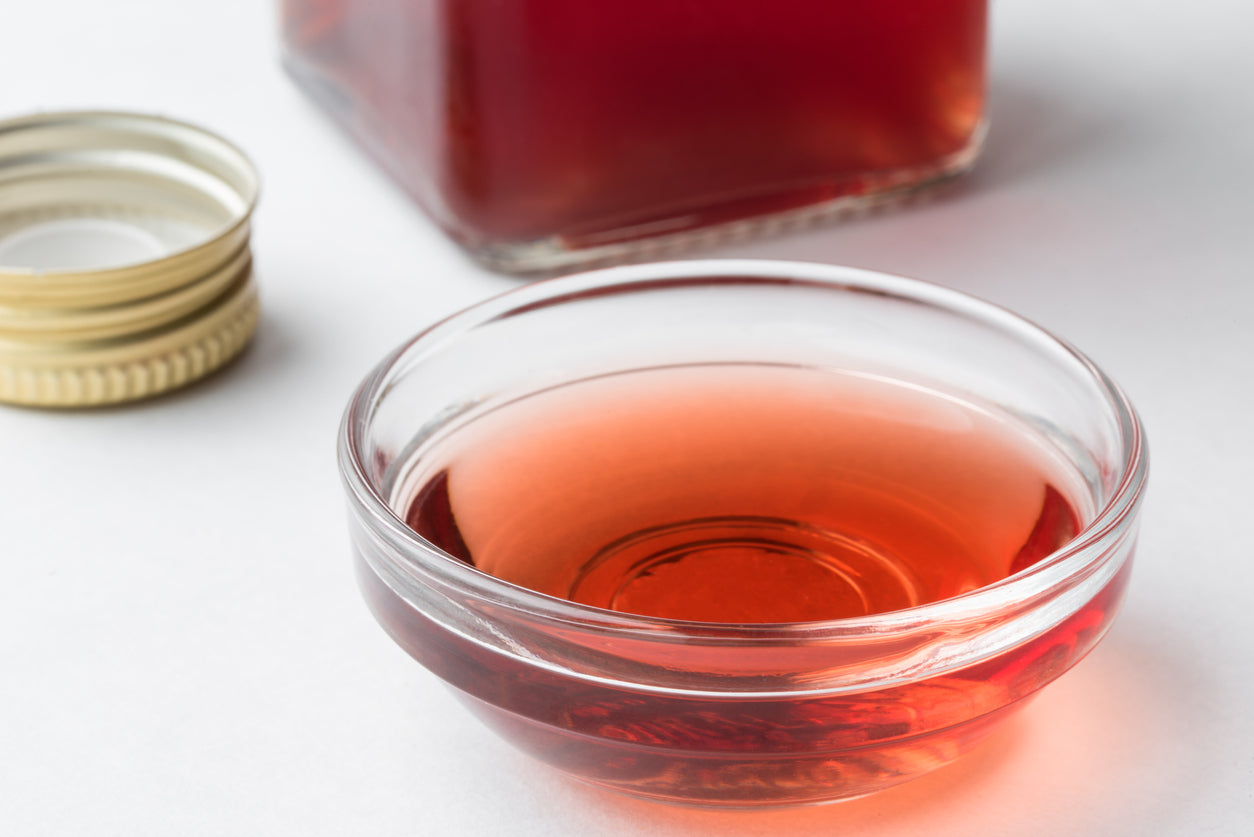3 compelling reasons to enjoy red wine vinegar

From antibacterial properties to digestive benefits, the contributions of apple cider vinegar to health are well-known. And, while apple cider vinegar doubtless deserves its glowing reputation, it might be time to show a little love to its “cousin” - red wine vinegar.
Clearly, there are distinctive differences between these two popular vinegars. Like the wine from which it’s made, red wine vinegar features a burgundy color - while apple cider vinegar is much lighter in appearance. And, red wine vinegar has a richer, more acidic flavor than apple cider vinegar, which delivers a more mellow taste. But when it comes to health benefits, does red wine vinegar have any real “edge” over apple cider vinegar? Let’s find out.
Red wine vinegar supports a healthy “ticker”
Surprisingly, there is only limited research on the effects of red wine vinegar on heart health. But what does exist is a wealth of studies showcasing the impressive heart-protective properties of vinegar’s various constituents. Red wine vinegar is a treasure trove of beneficial compounds.
For example, vividly colored red wine vinegar is higher in anthocyanidins than apple cider vinegar - natural plant pigments with antioxidant effects that can help prevent oxidative damage. (Scientists found that red wine vinegar made from Cabernet Sauvignon wine contained a whopping 20 different types of these compounds!)
Red wine vinegar also features higher levels of resveratrol, an antioxidant believed to relax blood vessels, improve circulation, and lower blood pressure. Finally, the acetic acid in red wine vinegar is believed to reduce levels of serum triglycerides, or fats, in the blood. (Who would have thought that something as sour as vinegar would offer such “sweet” gifts to the heart?)
Red wine vinegar may promote weight loss
Low in fat and calories - yet packed with hearty flavor - red wine vinegar is a key ingredient in vinaigrette salad dressing. This classic dressing is a great alternative to commercial dressings, which can be laden with preservatives, chemicals, and pro-inflammatory oils. But red wine vinegar is more than just a diet-friendly condiment. Proponents say that this staple of the Mediterranean diet can help promote weight loss.
Its acetic acid may help slow the digestion of carbohydrates while increasing glucose absorption, reducing fat storage, and increasing fat burning. Acetic acid in red wine vinegar may also help reduce body weight by inhibiting the release of ghrelin, the “hunger hormone.” In an older but still reputable study published in Bioscience, Biotechnology and Biochemistry, obese adults who drank a 500-ml beverage with either 15 ml or 30 ml of red wine vinegar daily for twelve weeks displayed significantly lower weight, smaller waist circumference and less abdominal fat than a control group. While more study is needed, red wine vinegar appears to have “all the right stuff” to help maintain a healthy weight.
Unpasteurized red wine vinegar offers probiotic benefits galore
If you opt for raw, unpasteurized red wine vinegar, you’ll get the benefit of probiotic bacteria. These can support a healthy balance in the gut microbiome, the all-important community of intestinal microbes. Studies have shown that the gut microbiome influences digestion, immune system health, and even mood - and that a healthy balance between strains of gut bacteria may help ward off obesity and autoimmune disease.
Probiotics also may help lower LDL cholesterol, which they do by preventing the breakdown and reabsorption of bile. Red wine vinegar appears to lead to a “happy” gut!
Red wine vinegar is highly versatile
Red wine vinegar excels in marinades - particularly in those for beef - and is particularly useful for tenderizing tougher cuts of meat. Of course, soups, dressings, salsas, and sauces can all benefit from red wine vinegar’s vibrant taste, and it can also be used for pickling - if you don’t mind the pinkish color it can impart. (In fact, some chefs maintain that this “pop” of festive color can increase the visual appeal of pickled veggies).
For classic vinaigrette salad dressing, combine red wine vinegar with extra-virgin olive oil and add your favorite organic spices, seasonings, and herbs.
Red wine vinegar is believed to be safe when used in moderate quantities in foods and recipes. However, it can cause health problems - such as lowered potassium levels, esophageal inflammation, heartburn, and damaged tooth enamel - if consumed excessively for prolonged periods.
When it comes down to choosing between red wine and apple cider vinegar, much of it depends on personal preference. And the good news is: you really can’t go wrong. Both types of vinegar make excellent additions to your healthy diet. However, if you’re looking for anthocyanins and polyphenols, red wine vinegar does appear to have the edge.
Bon appetit!
Sources for this article include:






